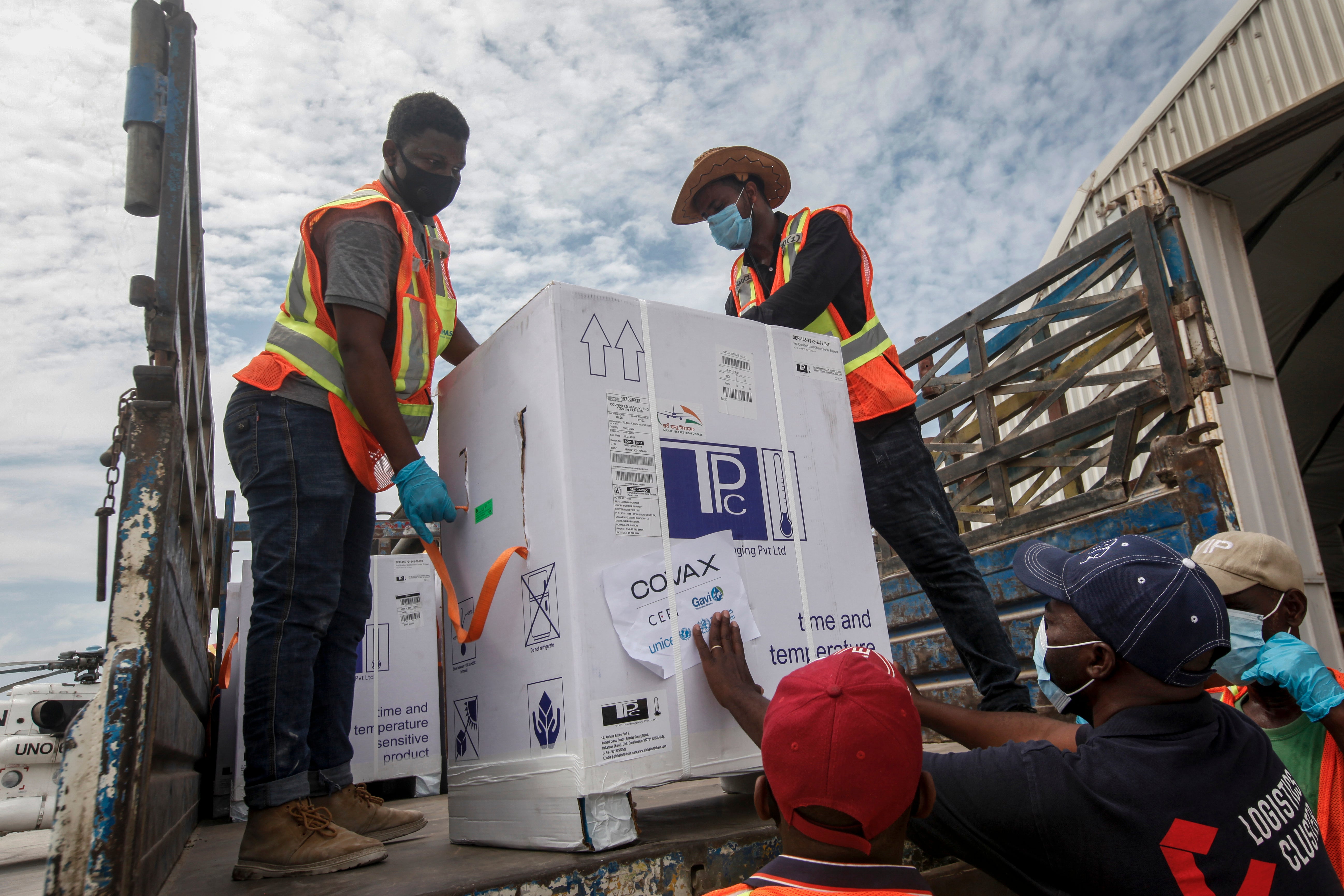WHO: Vaccine rollout unaffected by concerns over AstraZeneca
The U.N. health agency says its global rollout of coronavirus vaccines remains unaffected even as a growing number of countries have suspended use of AstraZeneca’s vaccine amid concerns about blood clots in some people who received it

The U.N. health agency said its global rollout of coronavirus vaccines remains unaffected even as a growing number of countries, especially in Europe suspended use of AstraZeneca’s vaccine on Monday amid concerns about blood clots in some people who received it.
The World Health Organization says the AstraZeneca vaccines for its COVAX program, which is shipping vaccines mostly to low- and middle-income countries, are being produced in India and South Korea — and the suspensions have been ordered over batches made in Europe.
“We understand these are precautionary measures," WHO assistant director-general Mariangela Simao said. “I would like to say this to countries from other regions that are not Europe: That the vaccines (at issue) so far are from European manufacturing not vaccines that are provided through the COVAX facility.”
Germany, France, Italy and Spain joined the growing list of mostly European countries — starting with Denmark last week — that temporarily halted use of the AstraZeneca vaccine in recent days to investigate cases of blood clots that occurred after vaccination. Others include Thailand and Congo.
“This does not necessarily mean these events are linked to vaccination," WHO Director-General Tedros Adhanom Ghebreyesus told a news conference. "But it is routine practice to investigate them and it shows that the surveillance system works and that effective controls are in place.”
While the AstraZeneca product is just one of several vaccines being deployed in Europe, the vaccine has a huge role so far in COVAX. The program began shipments in late February and has plans to ship more than 200 million doses by the end of May — nearly all of them versions of the Oxford-AstraZeneca vaccine.
A total of 92 countries are to receive vaccines for free through COVAX, which is led by the WHO; Gavi, a vaccine group; and the Coalition for Epidemic Preparedness Innovations. Another 90 countries and eight territories have agreed to pay for doses through the program.
Dr. Soumya Swaminathan, WHO's chief scientist, noted that 300 million doses of coronavirus vaccines have been injected around the world, and there is no documented death linked to any one of them.
She said the rates at which blood clots have occurred in people who received the AstraZeneca vaccine “are in fact less than what you would expect in the general population.”
In India, where most of the AstraZeneca doses for COVAX are being produced, the news agency Press Trust of India reported 234 “adverse events” -- including 71 deaths — through Friday among people who received a dose of either AstraZeneca's vaccine or another by India's Bharat Biotech.
The Indian government is reviewing the cases. Activists and medical ethics experts have been concerned about how effective the mechanisms are to monitor adverse events in India.
WHO says its current recommendation is that the benefits of using AstraZeneca’s vaccine and others to fight COVID-19 — which has killed more than 2.6 million people worldwide — far outweigh the risks.
___
AP Science Writer Aniruddha Ghosal contributed to this report from New Delhi.
___
Follow AP’s pandemic coverage at:
https://apnews.com/hub/coronavirus-pandemic
https://apnews.com/hub/coronavirus-vaccine
https://apnews.com/UnderstandingtheOutbreak